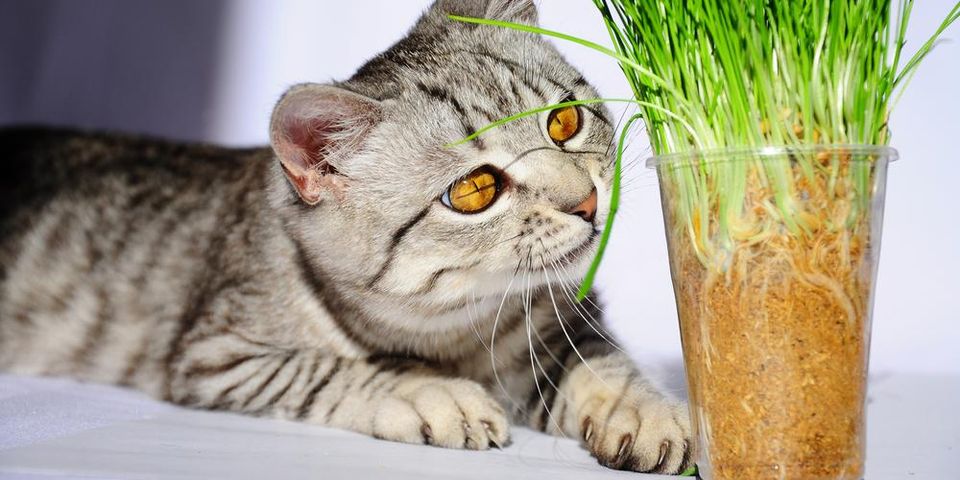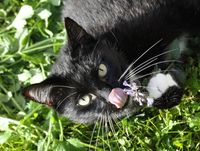
Many pet owners love watching their cat enjoy catnip. While it isn’t dangerous, it’s still important to know what you’re giving your cat. The veterinarians at Animal Medical Center in Foley, AL, help pets and their owners in a friendly environment. Below, they explain what this herb is and the effect it has on your furry family member.
What Is Catnip?
 Catnip is an herb that falls in the same family as mint and there are 250 known species. It’s native to Europe and Asia and was first brought to North America in the 1600s. Its Latin name—cataria—means “cat,” and it’s been used in a variety of capacities. Catnip teas have a relaxing quality and have been used to help with insomnia, headaches, and anxiety. Not everyone feels the effects, and the same goes for cats. How your cat responds is completely genetic. Roughly one in every two cats feels the effects because of a sensitivity that’s passed down genetically. Also, most kittens can’t feel the effects because their response to it hasn’t fully developed.
Catnip is an herb that falls in the same family as mint and there are 250 known species. It’s native to Europe and Asia and was first brought to North America in the 1600s. Its Latin name—cataria—means “cat,” and it’s been used in a variety of capacities. Catnip teas have a relaxing quality and have been used to help with insomnia, headaches, and anxiety. Not everyone feels the effects, and the same goes for cats. How your cat responds is completely genetic. Roughly one in every two cats feels the effects because of a sensitivity that’s passed down genetically. Also, most kittens can’t feel the effects because their response to it hasn’t fully developed.
How Does Catnip Affect Cats?
The organic compound nepetalactone in catnip is what cats respond to. It’s found in oil on the leaves, stems, and seeds, and ingesting or smelling it can put your cat in a state of bliss. Some may roll around and be playful while others will be more relaxed. The effects are felt immediately and last roughly 10 minutes. The only side effect of catnip is possible vomiting and diarrhea, but that only occurs when you cat has ingested too much. Otherwise, it’s completely safe and not addictive. If you have any concerns, however, speak with your veterinarian.
Catnip is a fantastic treat for cats. For all your furry friend’s health needs and more information about catnip, turn to a veterinarian at Animal Medical Center. Whether you need a wellness exam, pet boarding services, or basic pet supplies, they’ll work with you to ensure your pet receives all the care and attention they need. Call (251) 955-5900 today to schedule an appointment with a veterinarian and visit their website and Facebook page to learn more.
About the Business
Have a question? Ask the experts!
Send your question

